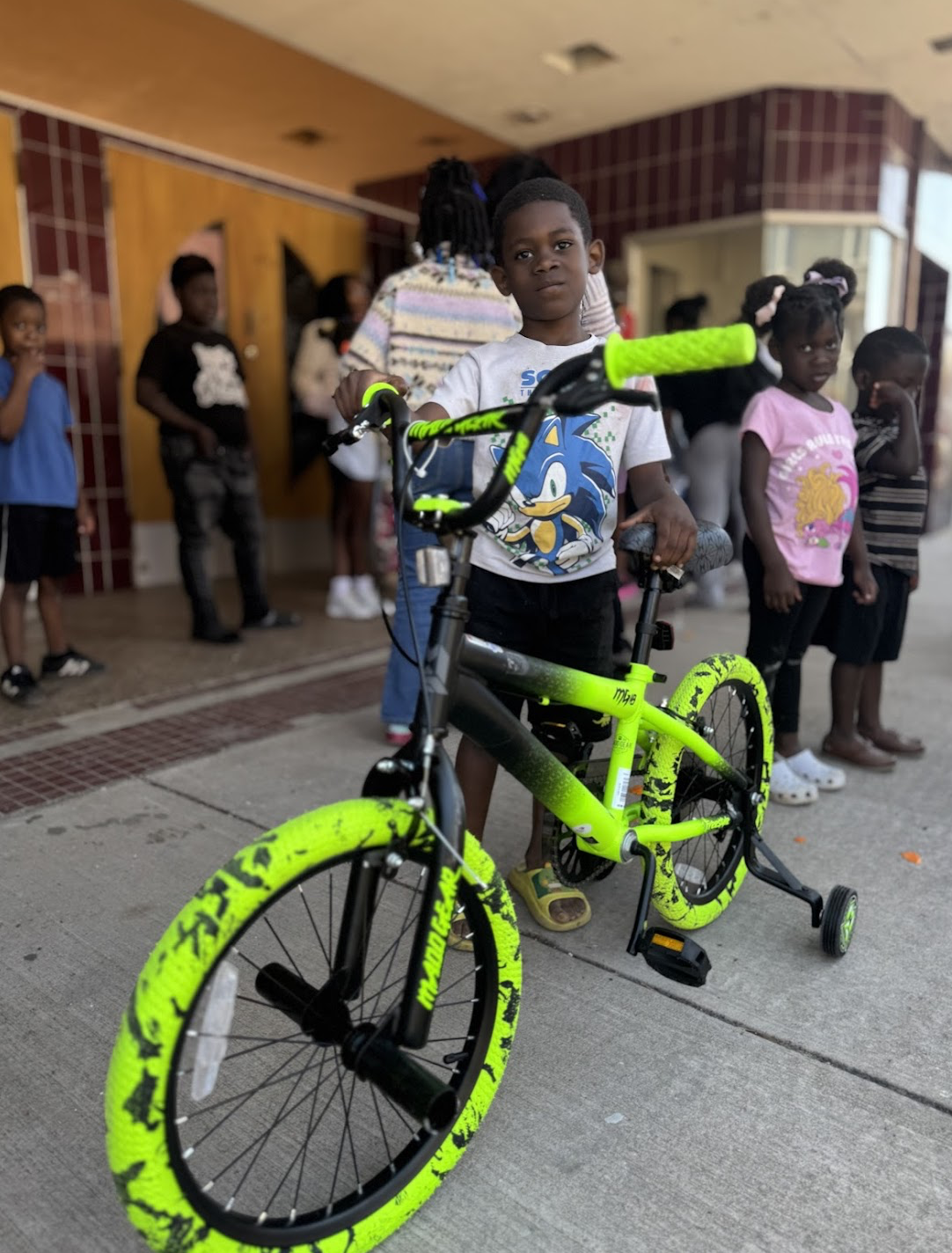
Improving Local Community Access
The Bike Reward Programs at Greene County Tech, Helena-West Helena School District and Mayor Lisa’s Afterschool Tutoring Program in Elaine each served as unique pilot initiatives to inform strategies to break down barriers to outdoor recreation for local youth while incentivizing and rewarding academic engagement.
“By linking bicycle ownership to positive academic and behavioral milestones, the program not only promotes physical activity but also fosters character development and a sense of accomplishment.” said Kim Webb, Math Teacher, Greene County Tech Junior High School.
This strategy is built on the belief that equitable access to outdoor recreation is a foundation for both individual well-being and broader community health. Expanding on this model, a sustainable local community access strategy would involve:
Partnership Expansion: Forge deeper collaborations with more school districts, local businesses, non-profits, and cycling organizations (like Pedal it Forward and Conway Cycling Project) to secure a consistent supply of bicycles, helmets, and repair kits.
Infrastructure Development: Work with city planners to advocate for safe bike lanes, improved crosswalks, and designated trail access points near schools and residential areas.
Skill-Building Workshops: Organize free bike safety and maintenance workshops for students and their families. This empowers participants with the knowledge to use and care for their bikes safely, increasing the longevity of the program's impact.
Mentorship Programs: Establish a mentorship component where older students or community volunteers can lead group rides and share their passion for cycling, building a sense of community and encouraging continued participation.
STUDENT TESTIMONY
“I haven't had a bike since I was a little kid… With a bike I can get money by doing doordashes, go to stores, and exercise all while being able to go freely where I want when I want. I wouldn't have to rely on my parents to drive me anywhere when I can go myself.”
“I can't drive. I have severe anxiety and it's hard for me to ride in a car. I hope to overcome that with time but a way to get around without troubling my mom, or my sister would be wonderful. I could be able to hopefully exercise more. Getting out more often would get me more motivated and healthier for me.
“This bicycle will be beneficial to me because I love riding bicycles, and really need to start exercising more, and this would be a perfect restart”
Program Logic Model
Outputs
Direct Results: 100 bicycles distributed to students.
Engagement Metrics: Number of students participating, number of times students are entered into the drawing for good behavior, and positive feedback from staff and students.
Inputs
Resources: Bicycles, helmets, repair kits, school staff time for program administration, project partners, funders, and volunteer support.
Pilot Partners: Greene County Tech School District, Helena-West Helena School District, Conway Bicycle Project, Pedal it Forward, Helena Fire Department, Phillips County Chamber of Commerce
Activities
Bicycle Distribution: Students are entered into a drawing based on specific criteria (kindness, safety, responsibility, positive work ethic, attendance, grades, and behavior).
Promotional Events: Host celebratory events (like the one with the Helena Fire Department) to build excitement and recognize student achievements.
Program Implementation: School staff track student progress and manage the drawing process across all grade levels.
IMPACTS
Increased student motivation: Students are excited and motivated to meet program criteria.
Improved behavior: Students demonstrate better classroom conduct and attendance.
Community excitement: The program generates positive buzz and enthusiasm within the school and community.
Short-Term (1-6 months)
Enhanced well-being: Students use the bikes to be physically active, leading to improved health.
Skill acquisition: Students learn basic bike safety and maintenance.
Increased access: More youth have a means of transportation for recreation and daily needs.
Mid-Term (6-12 months)
Sustained change: The program contributes to a lasting culture of health and active living within the community.
Reduced barriers: Students and families have a more positive view of and easier access to outdoor recreation.
Community revitalization: The program contributes to the long-term goal of alleviating poverty and improving quality of life in the Delta by fostering a new generation of active and engaged citizens.





